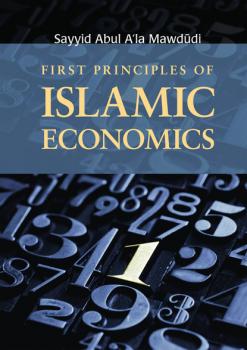Экономика
Различные книги в жанре ЭкономикаFifty Economic Fallacies Exposed
Whilst it is impossible to argue that the earth is flat without fearing ridicule, fallacies in economics are widespread. Such fallacies pervade the intellectual sphere and even influence policy. Professor Geoffrey Wood of the University of Buckingham exposes such popular economic fallacies in this revised edition of Fifty Economic Fallacies Exposed. Professor Wood looks at, for example, the supposed dangers of free trade, the abilities of governments to control the economy, the effects of government regulation and whether millions of jobs depend on our continued membership of the European Union. These lucid and stimulating articles are invaluable to students struggling to master some of the complexities of economic theory and its applications, who often find that the most effective way to learn economic analysis is to see such fallacies exposed. It is a text particularly suitable for first-year economic students, complementing existing textbooks as it does, and clarifying basic concepts in economics while demonstrating the practical uses of economic theory.
Principles of Management
Management is a dynamic and developing discipline. More emphasis is placed on the management of strategic alliances, improvement of productivity, management of change and strategic management. This book provides a clear understanding of the subject in today’s context. Contents: – Basic nature and importance of management – Necessary information on the planning processes. Types of plans and techniques with reference to corporate planning and strategy formulation – Organising processes, their nature, importance and elements – Elements of motivation, leadership and communication – Plus new trends in management
Poverty Ethics and Justice
Poverty is one of the most serious moral issues of our time that does not yet get the appropriate response it deserves. This book first gives an in depth moral analysis and evaluation of the complex manifestations of poverty. It then offers a series of ethical reasons to motivate everyone to engage in the struggle to eradicate poverty. Social science research results are synthesized into a definition and explanation of poverty that provide proper background for moral evaluation. Poverty is defined as a many-faceted phenomenon consisting of tightly interwoven characteristics that play out in a complexity of manners depending on the unique circumstances in individual situations. The following series of claims are defended in the book: (1) Poverty is a complex phenomenon that can have a wide ranging series of negative impacts on individuals and societies; (2) Poverty must be understood from a variety of ethical perspectives and through different metaphors; (3) Poverty and its consequences undermine the dignity of its sufferers and thus must be eradicated for its inhuman consequences; (4) Poverty affects all the networks humans are involved in and thus diminishes the quality of life of all human beings; (5) We must evaluate all possible dimensions of the phenomenon of poverty in terms of values of ethics and justice generally shared in contemporary liberal democracies. (6) Poverty can best be addressed through collective human action after re-imagining the goal and purpose of political institutions and a reformulation of the purposes aid ought to be for.
The SAGE Handbook of Qualitative Business and Management Research Methods
The SAGE Handbook of Qualitative Business and Management Research Methods provides a state-of–the art overview of qualitative research methods in the business and management field. Bringing together a team of leading international researchers, the chapters offer a comprehensive overview of the history and traditions that underpin qualitative research in the field. The chapters in this volume have been arranged into four thematic parts: Part One explores the i nflu e ntial traditions underpinning qualitative research, such as positivism, interpretivism, pragmatism, constructionism and beyond. Part Two looks at r esearch designs, covering ethnography, field research, action research, case studies, process and practice methodologies. Part Three focusses on the researcher : examining issues such as positionality, reflexivity, ethics, gender and intersectionality. Part Four examines challenges relating to research design, access and departure, choosing participants and more.
China's Economic Development Strategies
China is a powerful engine of the global economy and the country's rise is undoubtedly the outcome of its protracted campaign of designing and implementing national development strategies since the founding of the People's Republic of China in 1949. This book reviews the transformation and innovation of China's economic development strategies, especially Deng Xiaoping's Three-Step strategy and Xi Jinping's internal and external strategies. By introducing the concept of strategic paradigm, it analyzes the theoretical basis of myriads of economic development strategies and predicts China's choice. With the evolutionary process and the outstanding problems in national development planning as the main thread, it discusses the improvement of the national planning system, specifically of the national overall planning system, the regional planning system, the interplay and conflict between regional planning. It also studies the reform of city-county planning system, major function-oriented zones (MFOZs) and planning legislation and institutionalization. It also attempts to put forward proposals to coordinate the interests of planning departments and make different types of planning at different administrative levels compatible.<b>Contents:</b> <ul><li>The Paradigms and Schools of Economic Development Strategy</li><li>Development Outlook and Development Strategy from A Global Perspective </li><li>China's National Development Concept and Economic Development Strategy</li><li>The National Economic Development Strategy in Xi's Era</li><li>A Historical Review of National Planning Management</li><li>Experiences and Lessons in Formulating National Development Plan</li><li>Improving Regional Planning</li><li>Development Planning Reform at the County Level</li><li>The Planning of the Major Function-Oriented Zones: Initiation and Evolution</li><li>Institutionalization of National Development Planning</li><li>Improvement and Innovation of National Development Planning System</li></ul><br><b>Readership:</b> Academics, professionals, researchers/undergraduate and graduate students interested in China's economic development and innovation management.China's Economic Development;Chinese Economy;Innovation and Development;National Economic Strategy;National Economic Planning00
Exiting the Fragility Trap
State fragility is a much-debated yet underinvestigated concept in the development and international security worlds. Based on years of research as part of the Country Indicators for Foreign Policy project at Carleton University, Exiting the Fragility Trap marks a major step toward remedying the lack of research into the so-called fragility trap. In examining the nature and dynamics of state transitions in fragile contexts, with a special emphasis on states that are trapped in fragility, David Carment and Yiagadeesen Samy ask three questions: Why do some states remain stuck in a fragility trap? What lessons can we learn from those states that have successfully transitioned from fragility to stability and resilience? And how can third-party interventions support fragile state transitions toward resilience? Carment and Samy consider fragility’s evolution in three state types: countries that are trapped, countries that move in and out of fragility, and countries that have exited fragility. Large-sample empirical analysis and six comparative case studies—Pakistan and Yemen (trapped countries), Mali and Laos (in and out countries), and Bangladesh and Mozambique (exited countries)—drive their investigation, which breaks ground toward a new understanding of why some countries fail to see sustained progress over time.
Land for the People
Half of Indonesia’s massive population still lives on farms, and for these tens of millions of people the revolutionary promise of land reform remains largely unfulfilled. The Basic Agrarian Law, enacted in the wake of the Indonesian revolution, was supposed to provide access to land and equitable returns for peasant farmers. But fifty years later, the law’s objectives of social justice have not been achieved. Land for the People provides a comprehensive look at land conflict and agrarian reform throughout Indonesia’s recent history, from the roots of land conflicts in the prerevolutionary period and the Sukarno and Suharto regimes, to the present day, in which democratization is creating new contexts for people’s claims to the land. Drawing on studies from across Indonesia’s diverse landscape, the contributors examine some of the most significant issues and events affecting land rights, including shifts in policy from the early postrevolutionary period to the New Order; the Land Administration Project that formed the core of land policy during the late New Order period; a long-running and representative dispute over a golf course in West Java that pitted numerous local farmers against the government and local elites; Suharto’s notorious “million hectare” project that resulted in loss of access to land and resources for numerous indigenous farmers in Kalimantan; and the struggle by Bandung’s urban poor to be treated equitably in the context of commercial land development. Together, these essays provide a critical resource for understanding one of Indonesia’s most pressing and most influential issues. Contributors: Afrizal, Dianto Bachriadi, Anton Lucas, John McCarthy, John Mansford Prior, Gustaaf Reerink, Carol Warren, and Gunawan Wiradi.
The Fair Trade Scandal
This critical account of the fair trade movement explores the vast gap between the rhetoric of fair trade and its practical results for poor countries, particularly those of Africa. In the Global North, fair trade often is described as a revolutionary tool for transforming the lives of millions across the globe. The growth in sales for fair trade products has been dramatic in recent years, but most of the benefit has accrued to the already wealthy merchandisers at the top of the value chain rather than to the poor producers at the bottom. Ndongo Sylla has worked for Fairtrade International and offers an insider’s view of how fair trade improves—or doesn’t—the lot of the world’s poorest. His methodological framework first describes the hypotheses on which the fair trade movement is grounded before going on to examine critically the claims made by its proponents. By distinguishing local impact from global impact, Sylla exposes the inequity built into the system and the resulting misallocation of the fair trade premium paid by consumers. The Fair Trade Scandal is an empirically based critique of both fair trade and traditional free trade; it is the more important for exploring the problems of both from the perspective of the peoples of the Global South, the ostensible beneficiaries of the fair trade system.
First Principles of Islamic Economics
Abul A'la Mawdudi laid down the foundations of modern Islamic economics. Drawing upon Islamic sources, Mawdudi spelled out a new paradigm for economic analysis and policy, wherein economic pursuits take place in the context of moral values and are directed towards the achievement of personal and social objectives. Integral to this approach is the concept of an interest-free economy that attempts to make efficiency and equity inseparable and interdependent. The creation and distribution of wealth thus become instrumental in promoting individual and social wellbeing, opening up pathways to development, social justice, and human welfare. This comprehensive anthology collects all of his major writings and provides a historic as well as an essential introduction to Islamic economics. Abul A'la Mawdudi (1903-1979) was a leading Muslim intellectual and a chief architect of the Islamic revival in the twentieth century. In 1941 he founded Jama'at-i-Islami, a political party in Pakistan, which he led until 1972. He authored more than a hundred works on Islam, both popular and scholarly, and his writings have been translated into some forty languages.









